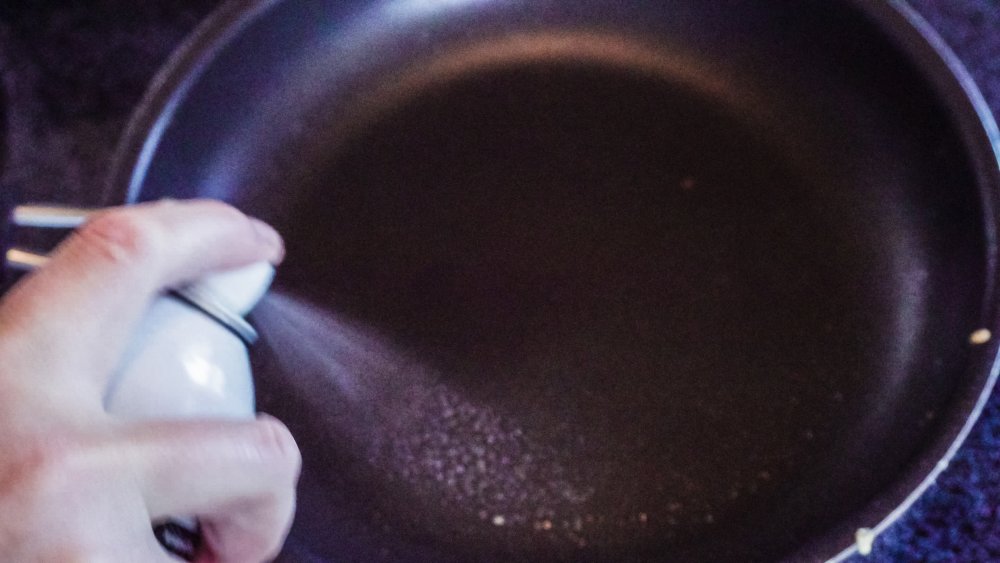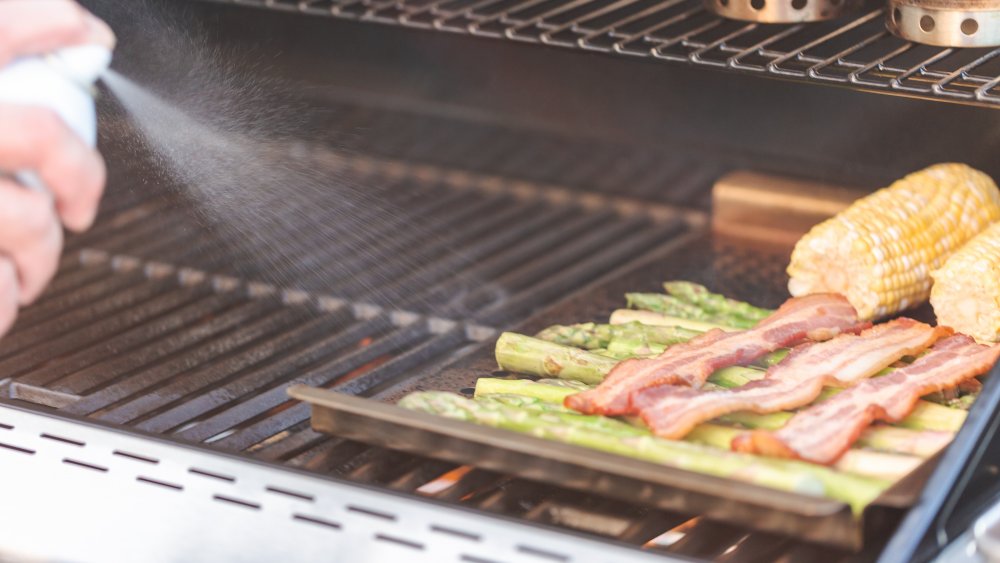You Should Think Twice About Using Cooking Spray On Your Frying Pans
Cooking sprays have been around since the middle of the last century (The first patent for a non-stick cooking spray was granted in 1957, and PAM Products, Inc. came into existence in 1959). Cooking oil spray works wonders when we use it to grease cake pans, both to keep parchment paper in place and to keep the batter from bonding with the sides of the pan. When spritzed inside of a cup or spoon before, cooking spray can help make sweet liquids like honey and molasses less sticky (via The Washington Post). Spraying cooking oil on your hands makes it easy to prep and handle burger patties and meatballs.
But while we might think of cooking sprays as allies in the fight to cut the amount of oil we use in our food, there's evidence that we may need to rethink the way we use them. As Real Simple warns, you're best keeping cooking spray away from your non-stick cookware. Cooking sprays contain the food additive lecithin which builds upon the pan and becomes a challenge to remove. Non-stick pan manufacturers like Anolon say cooking sprays also burn at lower temperatures, damage the coating on your pan, and will void your warranty.
Cooking sprays may contain substances you're uncomfortable with
Lecithin and the potential of having to deal with ruined non-stick cookware aside, there are other reasons why you may want to ditch your cooking spray anyway. Many contain other additives like the anti-foaming agent, dimethyl silicone, as well as propellants, which are liquids that are meant to push fluid out of the pan. Some popular propellants include propane and butane. However, it's important to note that the FDA has classified many commonplace propellants as GRAS ("Generally Recognized As Safe") (via Fox News). In 2015, certified nutritionist Deborah Enos warned that most oils used in cooking sprays are also made with GMOs (genetically modified organisms), which may make some consumers uncomfortable.
We get that cooking oil sprays are a great way to control the amount of oil you use in your salads and in your cooking pan. Instead of using a commercial spray, you may consider buying an oil mister, which you can fill with your favorite kind of cooking oil. It may not work the same way, but at least you know what you're getting (via Washington Post).

